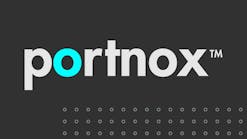The security industry and the companies that comprise it are certainly no strangers to change. Whether you’re involved in manufacturing products or installing them, there’s not a company in the market that hasn’t been touched by consolidation or personnel changes within an organizational structure. One industry firm that is going through its own season of change is ACRE, the parent organization of Vanderbilt and ComNet.
Late last year, the company sold one of its portfolio properties, Mercury Security Products, to HID Global for an undisclosed sum. Near the end of February, the company also announced that longtime UTC executive Ronald Virden would be joining the ACRE team as chief operating officer as of April 1. Virden had little time to settle into the role, however, as ACRE announced just last week that he would be assuming the position of president of ACRE International effective June 1 and that Andrew Acquarulo Jr. would become president of ACRE Americas effective April 1.
Virden will be based in Dublin, Ireland, and take over the Vanderbilt CEO role from Joe Grillo, who will continue to serve as ACRE CEO. All of the management of Vanderbilt's international operations, as well as ComNet's UK-based operations, will fall under Virden's purview. Virden will also remain COO of ACRE.
SecurityInfoWatch.com (SIW) sat down with Virden and Grillo to discuss some of these recent changes and how they plan to position the company in the market moving forward.
SIW: Ron, what are some of the things you hope to bring from your experience at UTC as you look to grow ACRE and its associated brands?
Virden: My background is in operations, so I grew up on the operations side and have been able to focus from a customer-back perspective. When we talk about things like customer satisfaction, metrics and those kinds of things, I was able to bring those to the different businesses that I ran and I look to bring those to ACRE and their portfolio.
SIW: Joe, what do you see as being the next evolution of ACRE and the companies within your portfolio?
Grillo: ACRE today, since we divested of Mercury in the fourth quarter of last year, really consists of the two strong brands of ComNet and Vanderbilt. One of the things we’re going to be looking at is how we can get positive sales synergies and operational efficiencies out of combining those two with a little bit more of an ACRE perspective, as well as other (companies) that we will potentially look to acquire. Divesting of Mercury was the absolute right thing to do at the right time for ACRE. We’ve done five acquisitions and one divestiture, so I think we will be looking to get out there and find more strategic opportunities to add to the business acquisitively.
SIW: Ron, what are some of your short and long-term goals for ACRE and how do you want to position the company moving forward?
Virden: It is talking to customers and delivering on what their expectations are. We want to be world class when it comes to customer service, technical support and fulfillment. Joe has pointed out in the past that, as far as not being one of the big huge conglomerates, we’re still a sizeable company out there and that is going to be a huge differentiator for us, particularly as we move forward with other acquisitions. And as we’re showing those improved service levels and meeting customer expectations that will continue to drive our growth in the future.
SIW: With regards to being more acquisitive, how does the recent divestiture of Mercury help ACRE in this regard?
Grillo: First of all, we did have some channel conflict that existed because while Mercury was a great business, it sold to Vanderbilt as a customer but it also sold to 20 of Vanderbilt’s competitors so it leaves our channels to market strategy of integration and distribution very clean and not having to occasionally answer questions about the natural channel conflict that existed there. It also helps from the perspective of strengthening our balance sheet to put us in a stronger financial position to go out and execute other acquisitions.
SIW: What are some trends you see impacting the market and how are they influencing your strategy?
Virden: From my view, we’re moving more to a mobile world and more web-based applications. With the new product line that Vanderbilt has with ACT 365 and being a cloud-based access control solution, I’m excited about that. Some of the partners we have already and some that we will work to partner with will help progress us further along as well when it comes to things like mobile credentialing and being able to move from just protecting property to actually protecting people regardless of where they are in the world. You will see us quickly move into a leadership position when it comes to tackling the next generation of access control. People today, particularly Millennials, expect things to be done on their mobile device and they are going to expect more from their employers.
About the Author:
Joel Griffin is the Editor-in-Chief of SecurityInfoWatch.com and a veteran security journalist. You can reach him at [email protected].



